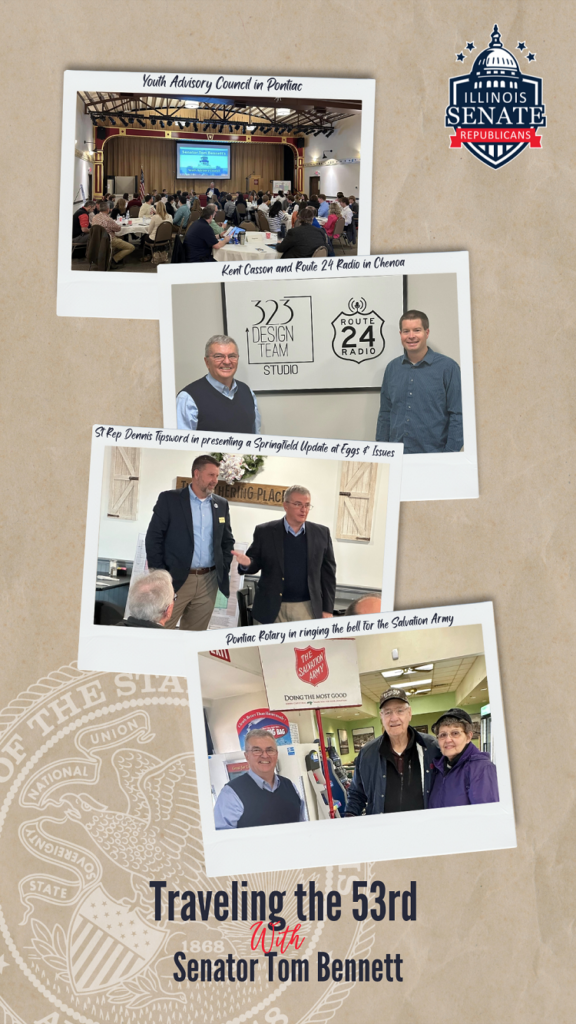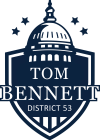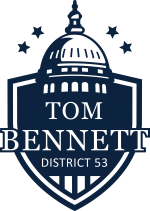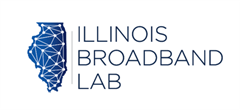
Next phase of Illinois’ broadband expansion
As Illinois continues to work toward enhancing broadband access across the state for its residents, the Illinois Broadband Lab (IBL) is collaborating with the Illinois Office of Broadband and the University of Illinois System to take the next step in deploying $1.04 billion in federal Broadband Equity, Access, and Deployment (BEAD) Program funds.
Under the BEAD Program, local governments, nonprofit organizations, and Internet service providers are allowed to challenge the accuracy of the FCC broadband map’s designation of unserved and underserved locations. The hope is that allowing these entities to challenge the map will ensure that federal resources are directed to areas where they are most needed.
Illinois plans to launch its map challenge in January 2024, subject to final approval from the National Telecommunications and Information Administration (NTIA). Interested entities eligible for participation can now sign up for the upcoming challenge process by completing a pre-registration webform.
In preparation for the challenge, the IBL is conducting a series of webinars this December to provide assistance and insight for interested eligible entities.
Upcoming Webinar Details:
- Tuesday, Dec. 12, 1:00-2:00 pm: BEAD Challenge Process preparations for eligible entities, covering pre-registration, types of challenges, required evidence, understanding and using FCC Fabric or the Illinois BEAD Challenge Map, speed test data collection, and best practices for documenting and aggregating challenges.
- Tuesday, Dec. 19, 1:00-2:00 pm: A deeper dive into the information covered in the Dec. 12 session.
Participants may register for these webinars here. Additional webinars will be scheduled for early January to help guide participants on how to submit challenges to the Illinois portal before the process formally opens. Specific challenge period dates are contingent on the timing of federal approval.
Learn more about Illinois’ plans to utilize the new federal broadband funds by reviewing the Connect Illinois Five-Year Action Plan. For more information on Illinois’ proposed challenge process, click here.

Illinois launches opioid settlements website
More than $1.3 billion in the form of an opioid settlement will be headed to Illinois by 2038 because of the multi-state lawsuits against prescription opioid distributors, manufacturers, and dispensers for their misleading practices regarding opioids.
Now, the state has officially launched the “Illinois Opioid Settlements Initiative” website to provide Illinoisans with updated information about the settlement agreements. The website will publicly display for interested providers and Illinoisans details on what lawsuits have been settled, how much funding has been awarded in the settlements, how much money remains unallocated, approved abatement uses for the funding, and what organizations have been awarded funding for the state.
Additionally, the new website will serve as the location for future Notice of Funding Opportunities (NOFO) for the distribution of funding for approved opioid abatement uses, with the first NOFO to be posted this month. The Illinois Opioid Settlements Initiative website will also include resources on implementing programs and services that have been identified in the state’s Overdose Action Plan and the Illinois Opioid Allocation Agreement.

Illinois Invests Additional $13 Million to Boost Job Training and Economic Development
The Illinois Department of Commerce and Economic Opportunity (DCEO) has unveiled an additional $13 million investment in the state’s Job Training and Economic Development Program (JTED). This initiative aims to provide workforce training and wrap-around services to help support equitable workforce recovery for Illinois residents facing challenges in securing meaningful employment.
In the second round of the program, JTED will target the economic impacts experienced by underemployed, unemployed, or underrepresented individuals, which include at-risk youth with barriers to employment. Priority populations encompass immigrants and refugees, justice-involved individuals, and rural residents.
JTED funding continues to concentrate on sectors hit hardest by continual labor shortages, such as labor manufacturing, agriculture, information technology, transportation, distribution and logistics, architecture and construction, healthcare, and hospitality and tourism.
Eligible applicants include employers, private nonprofits, federal Workforce Innovation and Opportunity Act administrative entities, Community Action Agencies, industry associations, and educational institutions. Eligible entities can apply for grants ranging from $250,000 to $750,000. The application window is open until January 10 at 5:00 p.m. You can review the NOFO and apply for the grant at DCEO’s website.
To assist applicants, DCEO will also be hosting a webinar on December 13 from 10:00 a.m. to 12:00 p.m. Interested parties are encouraged to reach out to CEO.GrantHelp@illinois.gov for assistance.

How much do we owe?
As of the time of this writing, the State of Illinois owes $2,136,238,350.79 to state vendors, including 16,184 pending vouchers. This figure represents the amount of bills submitted to the office of the Comptroller and still awaiting payment. It does not include debts that can only be estimated, such as our unfunded pension liability which is subject to a wide range of factors and has been estimated to be more than $139 billion. At the same time last year, the state’s accounts payable stood at a little less than $2 billion.
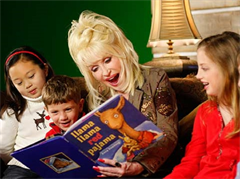
Did You Know?
Illinois launches statewide partnership with Dolly Parton’s Imagination Library
This week, the Dollywood Foundation and the state of Illinois announced the launch of an official collaboration to provide Dolly Parton’s Imagination Library statewide. The initiative will receive $1.6 million from the state’s Fiscal Year 2024 budget and aims to enhance early childhood learning throughout Illinois by providing free, high-quality, age-appropriate books to children from birth to age five, regardless of family income.
The Imagination Library was first launched in 1995 and has since evolved into one of the world’s premier early childhood book-gifting programs. Since its establishment, it has distributed more than 220 million free books in the United States, Canada, United Kingdom, Australia, and The Republic of Ireland, with more than 2.8 million books being mailed monthly.
The program currently operates across 40 counties in Illinois, with more than 30,000 children benefiting. State officials and the Dollywood Foundation hope to ensure that every child within the state has access to the program’s benefits.
Research underscores the critical role of the first five years in a child’s development, with around 90 percent of brain development occurring during this period. Daily readings by parents or caregivers during these formative years significantly contribute to school readiness, impacting long-term health and economic outcomes. To explore partnership opportunities or check program availability in specific areas, interested parties can contact Pam Hunsaker at Phunsaker@imaginationlibrary.com. Families can check if the program is available in their areas, enroll their children, or sign up for notifications regarding program expansion on the “find my program” page at www.imaginationlibrary.com. If no local program currently exists in your area, it is recommended that you visit the website periodically as the program expands across the state.
This Week in the 53rd District
State Senator Tom Bennett – Working full-time to represent you
